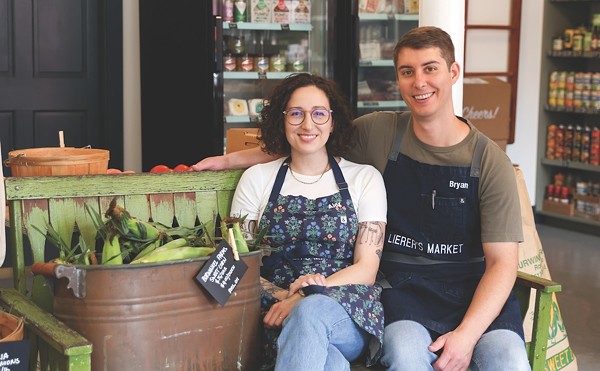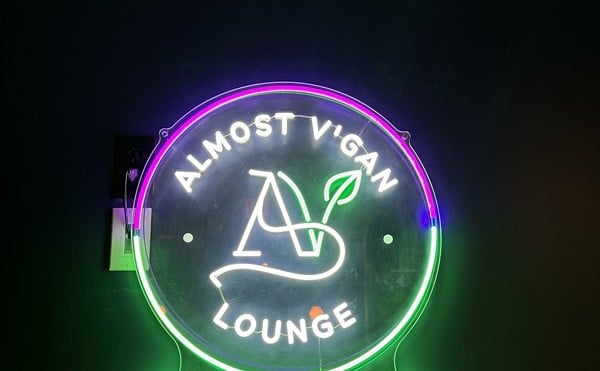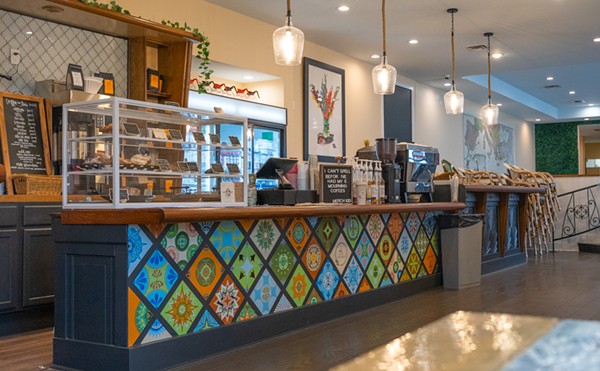My qualifications to write about food are limited. But I did once have successful careers as an Associate Desserts Technician and a Pre-Certified Delicatessenal Culinarian. At the same time.
At least, that’s what it says on my résumé. In layman/non-bullshit terms, I worked behind the counter at the deli/bakery combo station at the Kroger store on Harrison Avenue in Westwood.
It was recently announced that the store would be the latest shut down by Kroger. I was far from shocked. Recent census numbers showed huge population losses on the West Side of town, and the always somewhat sketchy neighborhood now seems far more desolate and dangerous. In the bottom-line-obsessed business world, closing a store in a low-income neighborhood that has lost (according to Kroger) well over $2 million in the past decade is a “no brainer” when finances need to be tightened.
Last year, Kroger yanked the rug out from under residents in Bond Hill (another area with a “bad neighborhood” rep) when it shut down its store there. Residents were upset about losing their longtime grocery store and furious at how Kroger allegedly closed the store abruptly without notifying customers. There were protests and the mayor even got involved, but for a company of that scale, such issues are math equations.
The company’s approach to the Westwood closing was smoother; they gave ample warning to shoppers and trumpeted their decision to provide bus tokens to shoppers so they can shop at another Kroger a couple miles away.
That store (on Ferguson Avenue) provides a more complete view of what’s going on here. After a reported $4 million renovation, the Ferguson store is having a grand reopening May 5, three days before the Westwood store is shuttered. The company is also reportedly spending $8 million on renovating a store in Delhi that is within five miles of the Kroger on Ferguson.
Both stores Kroger is dumping huge coin into are “Super Stores,” those now-commonplace gargantuan complexes that offer way more than just groceries, enabling customers to add things like underwear, wrenches and bicycles to their grocery list. “Super Stores” give customers more reasons to return more frequently and spend more money.
While I heard the store was closing, I decided to visit one last time.
While it did bring back memories, it wasn’t the same store. For shoppers, that’s a good thing. While I remember the pitiful selection, the store was no longer dominated by cheap versions of name-brand products, like Tidey Laundry Detergent or Koka-Kola.
The super-friendly cashier happily chatted with me as I left and I squeezed by clusters of people near the entrance who had stopped to chat. That communal vibe is what’s lost as smaller, longtime supermarkets disappear. A neighborhood store is often the social hub of a community, the one place where you have a chance to run into pretty much every person you know in the area.
Kroger is big business and it does what it believes is best for shareholders. The company does community outreach and is generous in its charitable donations, but even that’s just a business move to show customers the company cares about the community.
But, instead of bus tokens and directions to another store, if Kroger really wanted to show a community how much it cares, wouldn’t the best move be to figure out a way to keep their supermarket open? Maybe some of the
“charitable donations” the company gives
out could be invested
in keeping those stores open and figuring out a way to make them less of a money-loser.
Maybe Kroger can “give back to the community” by giving them back their grocery store.
CONTACT MIKE BREEN: [email protected]





